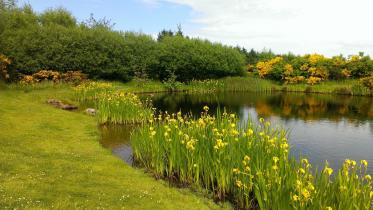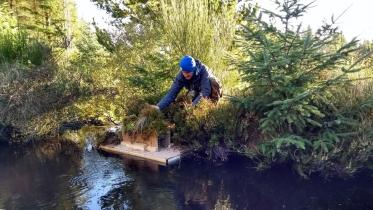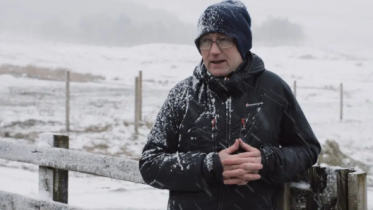Frequently Asked Questions – Attending Meetings of the Board and Committees of NatureScot
To help you understand how our meetings may be accessible to the public, we have compiled some common questions and answers. We hope you find this information helpful. If you have further questions please email [email protected].
Who can be a public observer?
Public observers are those that attend a meeting but are not directly involved in the business of the meeting. Members of the public can ask for further information in advance of the meeting through contacting Executive Office. Notice of planned attendance by the public must be provided at least 48 hours prior to any Board meeting by e-mailing [email protected].
Can public observers take part in the meeting?
As a public observer, you will be able to listen to the business of the meeting, except when Official-Sensitive information is being discussed (see ‘Will I be able to listen to all the discussions?’ below for more details). However, you will not be able to participate in the discussions. So you won’t be able to ask questions, take part in voting or put your own views to the members of the meeting.
If I have any questions, who should I talk to?
A member of the Executive Office team will welcome the public observers as they arrive for the meeting. They will do their best to help you with practical questions about the running of the meeting and the facilities available. If they are unable to answer your question they may refer you to another member of staff.
How will the meeting run?
At the start of the meeting, there will be an introduction from the meeting Chair. The following items are usually discussed during the public part of the meeting:
- The agenda for the meeting.
- The minutes of the last meeting.
- Whether any Board member has a conflict of interest they need to declare.
- The Chair will then move on to the business of the meeting.
- There may be rare occasions when a meeting is entirely closed to public observers. This is because the Chair has decided that it will not be possible to conduct any business without referring to confidential information.
Who will be at the meeting?
In addition to the Chair and Board members, the following people may be present at meetings:
- Senior members of staff who will speak, present or have authored the papers being considered at the meeting.
- A representative from Young Employee Panel
- External appointed committee members with relevant experience
- Members of staff involved in running and supporting the meeting.
What will the Board members talk about?
The agenda includes various papers, these can be for:
- Decision
- Endorsement/Approval
- Discussion
- Information
- Oral Updates
There are four key Board meetings in the year which discuss the Quarterly Performance reports these are clearly identified in the yearly schedule of meetings.
Will papers be provided for public attendees to follow the meeting?
The Board agenda is posted on the website, four weeks prior to each Board meeting. Papers, other than those marked Official Sensitive are made available to download five days in advance of the meeting. Agenda items may change prior to the meeting, with any changes reflected on the website agenda.
You are welcome to download these documents and bring them along to the meeting.
Titles of the Official-Sensitive papers items are visible and clearly marked on the website.
Will I be able to listen to all the discussions?
It depends on whether some of the information to discuss is marked as Official-Sensitive. If it is, then all public observers will be asked to leave the room while these closed session discussions take place. Board papers which may be dealt with in Closed Session (subject to the decision of the Chair, Deputy Chair(s) and Chief Executive) will be marked Official Sensitive and include:
- Papers relating to NatureScot’s policy advice to Government or to the Scottish Parliament(including Parliamentary Committees), where this is subject to further discussion with the Executive or has been asked for in confidence.
- Papers containing information, which is the subject of legal proceedings, for example, judicial review.
- Papers relating to appointments to the Committees where these refer to individuals.
- Papers that contain information, which if publicly released would increase the likelihood of damage to the environment.
- Papers, which include ‘commercial in confidence’ information not already in the public domain.
- Papers where confidentiality is required to protect the organisation’s’ negotiating position on a strategy issue or casework.
- Papers, which include information provided to NatureScot by a third party on a confidential basis, or personal information on an individual who has not given consent for disclosure.
- Papers relating to personnel and staffing issues which are of a confidential or personal nature.
Do I have to stay for the entire meeting?
No, but to keep disruptions to a minimum we ask that where possible public observers leave meetings during a suitable break.
What facilities do you have to accommodate people with disabilities?
We hold our Board meetings at various NatureScot offices and off-site where capacity allows. We will ensure that the meeting venue complies with legislation on accessibility for people with disabilities.
Please advise [email protected] if you have any specific accessibility requirements that you would like to tell us about before the meeting.
Will refreshments be provided for public observers?
Refreshments will not be provided for public observers at meetings. During any breaks, public observers can leave the meeting venue to purchase refreshments from a café or shop in the area but please return back to the meeting promptly.
Can I record and take notes at the meeting?
Within England and Wales recent changes to legislation entitled public observers to record the proceedings in a meeting. This legislation does not currently apply within Scots Law therefore audio or video recording, live reporting and photographing of meetings is not authorised. If a public observer is found to be recording a meeting they will be asked to leave.
Public observers are welcome to take notes at the meeting, however, the use of laptops or other electronic devices are not allowed during the course of the meeting.
Can I quote what is said at a meeting?
Any quotations for external publication are limited to the final summary, which is usually provided by the Chair. You may not quote what is said by any person or group present at a meeting directly or indirectly (for example, attribute the quote to an unnamed member or officer) unless explicit approval has been obtained from the Chair and the relevant person has agreed to be quoted.
Can I report what is said at meetings without using quotations?
Yes. We are happy for external publications to publish information on the issues discussed at meetings as long as they do not attribute the text to an individual or particular group participating in the meeting. While a range of views will be expressed at meetings, the draft and final recommendations are agreed by the Board/Committee. These important decisions could not be reached unless discussions covered the full range of views before making the draft and final recommendations.
Can I talk to members during the breaks?
It is important that no one tries to influence an individual member’s view during the meeting, the breaks or outside the meeting on any topics that are under discussion. We ask public observers to address any questions they have to the Chief of Staff. For media enquiries, please phone 0131 316 2655 or email [email protected]
What will happen if a public observer tries to disrupt the meeting?
We expect that everyone who comes to a meeting will respect the work of the Board and will not cause any disruption. If a public observer causes any disruption, the Chair may insist that the individual leaves. We may also restrict public observers who cause a disruption from attending any future meetings.
How do I become a member of the NatureScot Board?
We welcome individuals from a range of backgrounds with enthusiasm, suitable skills and experience to join our Board to support our work. Appointment to the Board is made by the Scottish Government. Board members serve for a fixed term and vacancies are advertised through Scottish Government Public Appointments




